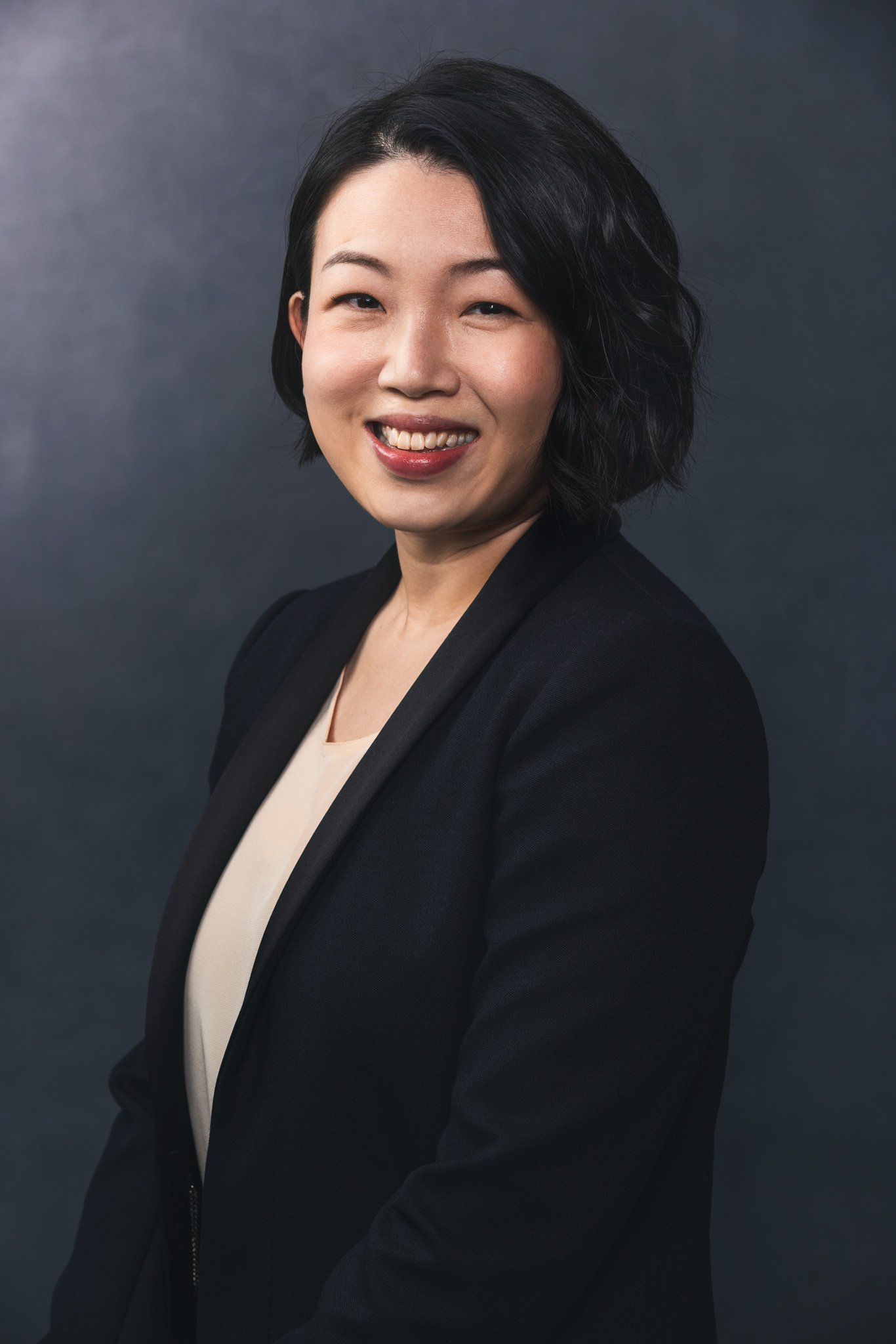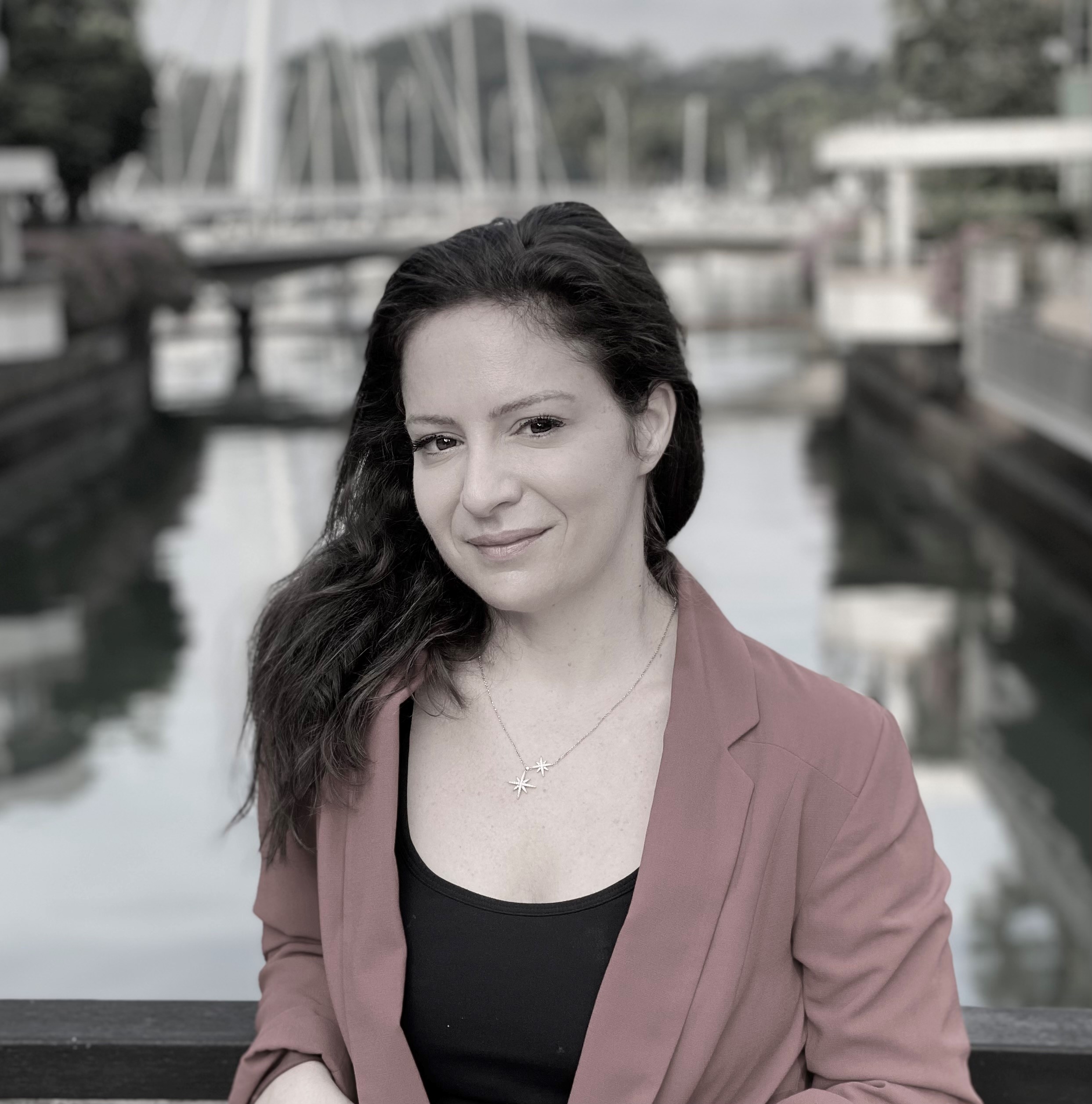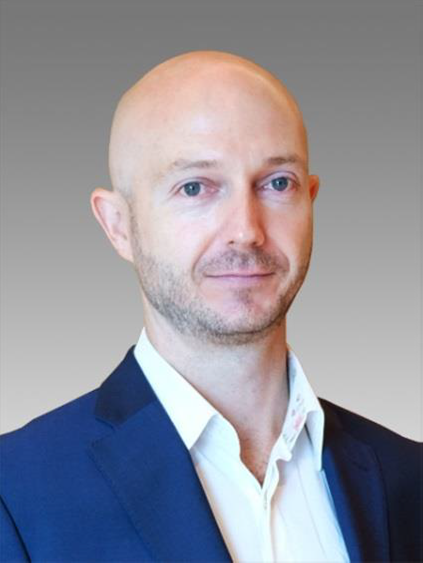I was intrigued by the combination of psychodynamics and organisation development concepts in the programme.
Tracy Ang

Fun fact about yourself?
The two most important transformations in my life took place during major health crises – SARS in 2003 and COVID-19 in 2020. (OK, maybe this is not such a fun fact!)
Can you tell us a little more about your personal and professional career journey so far? How did you get to where you are today?
I had a pretty linear life up to the age of 22, did all the right things expected by my parents and graduated with a degree in accounting, a practical choice of study.
When SARS hit Singapore in 2003, I had just gotten married and was at the early stage of building my career. The economic outlook post-SARS was quite bleak. My husband and I decided we needed to do something transformational to our careers and see the world before we start a family. In 2004, we left for France to do an MBA at HEC Paris together.
After the MBA, I interned at a family office and worked in investment banking in London. When my husband was posted to Hong Kong, I left investment banking and landed a job with a private equity firm in Hong Kong. After our first child was born, I requested for a transfer from Hong Kong back to Singapore. I stayed with the same private equity firm for 14 years.
In the midst of the COVID-19 pandemic, I started experiencing what I thought was a mid-life crisis. I was burnt-out juggling a stressful job and parenting my son who has ADHD (attention deficit hyperactive disorder). Outwardly I looked like the woman who has achieved the holy grail of “having it all” but inwardly I was deeply unhappy, questioning the meaning and purpose of everything in my life. After careful consideration, I decided to leave my job to focus on myself and my family.
For the first time in my life, I took a break with no concrete plans in the foreseeable future.
In total, I was “in transition” for 10 months. During this period, I started the EMC programme and I had the time to reflect and make sense of my life – how did I become the person I am today, why did I behave the way I did in the past and why do I react in certain ways in certain situations?
The theories, concepts and tools taught in the EMC and diverse experiences shared by my EMC classmates all played a part in helping me connect the dots between my adult life and my childhood experiences, uncovering some of my shadows and bringing them into light.
As I connected these dots, I realised I was also unpacking a lot of emotional baggage from the past. With every dot connected, I discovered a bit more about myself and I felt lighter in spirit.
In May 2022, I joined a foodtech start-up as Head of Finance and Investor Relations. By then, I felt ready for a new challenge and went with my gut instincts.
So, what made you decide to pursue the EMC, and why did you choose INSEAD?
When I decided to take a career break, I thought of going back to school as a way of providing some structure to my newfound freedom. I researched many executive programmes but did not commit to any.
Serendipitously, I read the Financial Times interview of Professor Manfred Kets De Vries “The CEO Whisperer: Every Leader Needs a Fool” in March 2021. I looked up the professor and learnt that he founded the INSEAD EMC programme.
I was intrigued by the combination of psychodynamics and organisation development concepts in the programme.
I could not stop thinking about it. By then, I was very close to the admission deadline, so I wasted no time to complete the admission essays.
Why INSEAD? Because the EMC is one of its kind in the world.
If you were to describe your experience so far on the programme what would it be? How would you describe your classmates, the courses, the professors? Has the EMC helped you in your career so far?
After three modules, I would describe the experience as “unexpected” in a positive way. Before each module, I prepared according to what I thought the module would be.
At the end of each module, all the preparation would be thrown out of the window and unexpected perspectives would be gained.
My new mantra is to just show up with curiosity and go with the flow.
Many of the psychological concepts introduced required me to reflect on my past, which sometimes made me feel uncomfortable, emotional and vulnerable. Writing the case papers and reflection papers became a therapeutic process. I learnt that the process of working through these difficult emotions is precisely where growth happens.
My wave comprises 22 diverse individuals each with unique life journeys. The EMC provides a safe space to share life experiences which contributes to everyone’s learning. I made real authentic connections with many of my classmates.
The professors are very experienced in containing the wave’s eagerness to get ahead of ourselves. The journey is very much a self-discovery process, and that takes time. I am guilty of often wanting to know what it’s like at the end. “It’s only the beginning” and “trust the process” are what we are often told by the professors.
I’ve only recently started a new job, after a 10-month career break so it’s too early to say if EMC has helped me in this new role. What I have now is better self-awareness, listening and observation skills which I am sure will come in useful.
I am a refreshed version of my previous self, ready to take on new challenges.
Do you foresee the EMC changing your perspectives or outlook towards life?
I’ve only completed three modules where the focus is on self-discovery. So far, I found myself becoming more introspective and I seek to examine my thoughts and feelings before reacting.
The connections I have made between my adult life and childhood experience made me more self-aware and prevented me from passing down negative experiences to my children.
The discoveries I made about myself through the EMC continues to evolve and I’m excited about the remaining modules.
What advice would you give to someone who might be interested in pursuing an INSEAD Masters programme?
If you find yourself intrigued by what you’ve read about the EMC, reflect on that curiosity. If you have many unanswered questions about that curiosity, about yourself and about life in general, this may be the programme that guides you in your self-discovery journey.




